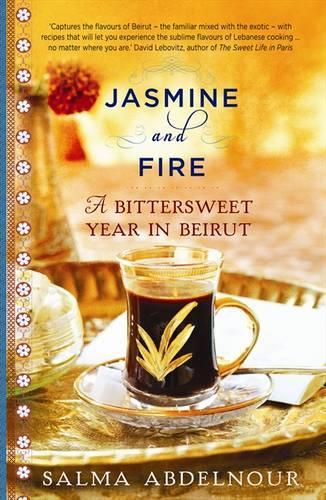
Jasmine and Fire: A Bittersweet Year in Beirut
(Paperback)
Publishing Details
Jasmine and Fire: A Bittersweet Year in Beirut
By (Author) Salma Abdelnour
HarperCollins Publishers (Australia) Pty Ltd
HarperCollins Publishers (Australia) Pty Ltd
1st June 2012
Australia
Classifications
General
Non Fiction
956.9250453092
Physical Properties
Paperback
336
Width 155mm, Height 235mm, Spine 26mm
390g
Description
In the mouth-watering tradition of POMEGRANATE SOUP, a food writer finds her way back home to that most hauntingly beautiful, tragic and dynamic of cities, Beirut, through the dishes of her childhood.
'In a way, food has always been my road home. the Beirut scenes I remember most vividly from childhood are of hanging out for hours over fragrant platters of juicy chargrilled meats and just-caught seafood, piping-hot loaves of fresh pita, and pistachio-topped pastries oozing with cream and honey and orange-blossom syrup...' Salma Abdelnour was just nine years old when, in July 1981, as bombs exploded around them, she and her family fled the bloody civil war in Lebanon for a quiet, safe new life in surburban America. Now, thirty years later, she returns to the place where she hopes to never feel like a stranger. In Jasmine and Fire, Abdelnour shares her intimate journey of rediscovery as she explores today's Beirut, one of the world's most hauntingly beautiful, dynamic and troubled cities, and of witnessing up close a year of dramatic changes in the Middle East and the rise of the Arab Spring. Against a backdrop of turmoil and uncertainty, she takes comfort in some of Beirut's enduring traditions, especially its legendary love of food. through rediscovering the favourite dishes of her childhood, she slowly begins to find her way home and a new sense of belonging. Like the best Lebanese meal, this unforgettable love letter to a fascinating city full of beauty, tragedy and hope will leave you wanting more.
Author Bio
Food writer Salma Abdelnour has worked as a food editor at O, The Oprah Magazine, been published everywhere from The New York Times to Food & Wine, made frequent TV appearances and runs a popular food-centric blog, SalmaLand. She is a relative of the late Edward Said and historian Albert Hourani.
